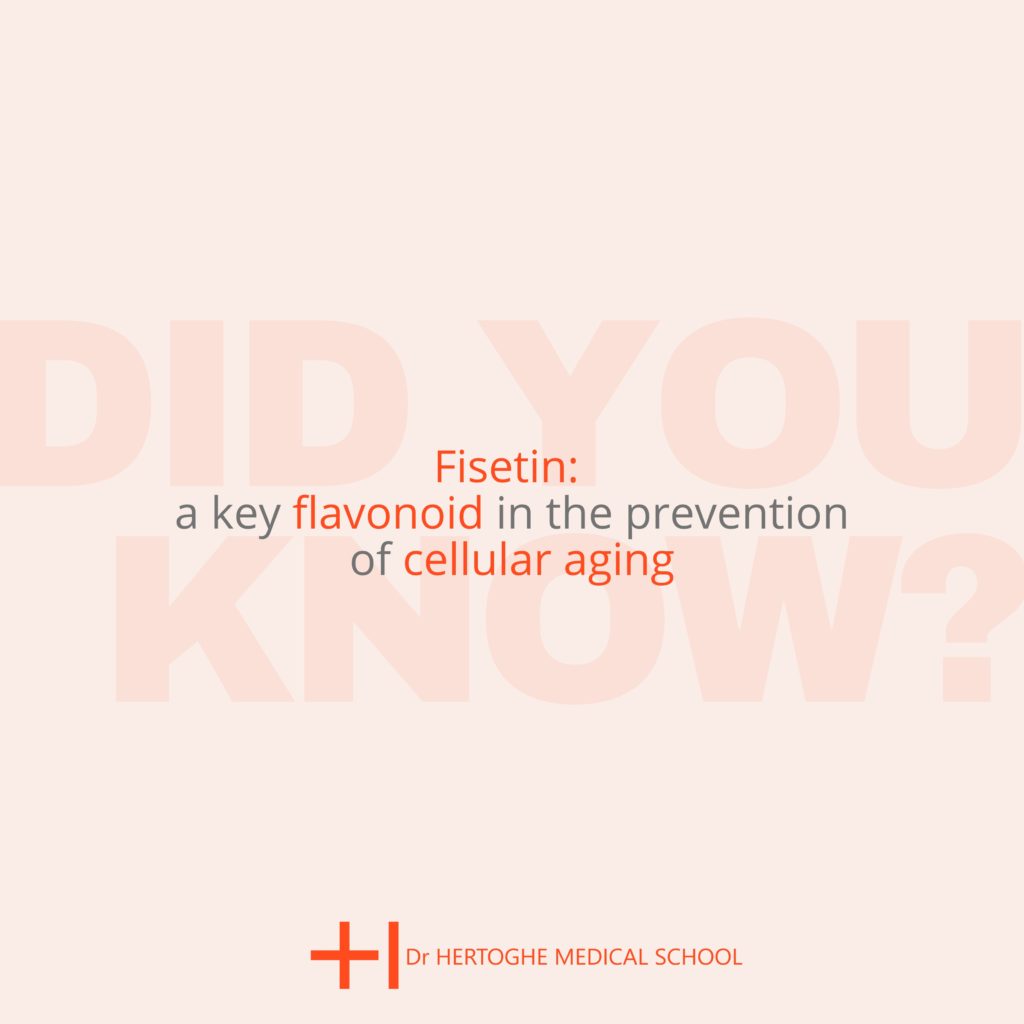Fisetin: a key flavonoid in the prevention of cellular aging

Fisetin is a naturally occurring flavonoid found in small amounts in fruits and vegetables such as strawberries, apples, onions, and persimmons. This plant compound is gaining increasing attention for its potential to slow cellular aging and improve various aspects of health. Its effects range from eliminating senescent cells to modulating longevity-related metabolic pathways, supporting brain health, and improving hormonal balance.
One of fisetin’s most promising actions is its senolytic activity. It specifically targets senescent cells—dysfunctional, inflammatory cells that accumulate with age. By promoting their clearance, fisetin helps reduce chronic inflammation and preserve tissue health. These effects have been observed in multiple animal models and suggest its usefulness in preventing age-related degenerative diseases.
Fisetin also acts as a fasting mimetic. It inhibits the mTOR pathway, which is often overactive during aging, and activates AMPK and sirtuins such as SIRT1. These pathways are associated with improved insulin sensitivity, increased mitochondrial biogenesis, reduced oxidative stress, and enhanced cellular repair. This helps restore a more youthful and efficient metabolism.
Another key mechanism is its ability to stimulate autophagy—the cellular recycling process responsible for eliminating damaged components. By supporting autophagy, fisetin contributes to optimal intracellular balance, which is essential for longevity.
At the brain level, fisetin has shown notable neuroprotective properties. Preclinical research has demonstrated its ability to reduce neuroinflammation, protect neuronal mitochondria, and enhance cognition in models of neurodegenerative diseases such as Alzheimer’s and Parkinson’s. These findings place fisetin among the most promising natural compounds for preventing cognitive decline.
Lastly, fisetin exhibits interesting metabolic and hormonal effects, especially in the context of polycystic ovary syndrome (PCOS). Studies suggest that it may reduce insulin resistance, improve hormonal balance, and lower oxidative stress, with results comparable to metformin in some cases. This opens the door to complementary or alternative strategies in the metabolic management of PCOS.
In summary, fisetin is a broad-spectrum, well-tolerated flavonoid with significant potential in functional and preventive medicine. Its combined effects on senescence, metabolism, brain function, and hormonal regulation make it a valuable tool for healthcare professionals seeking to optimize cellular longevity and improve their patients’ quality of life.

